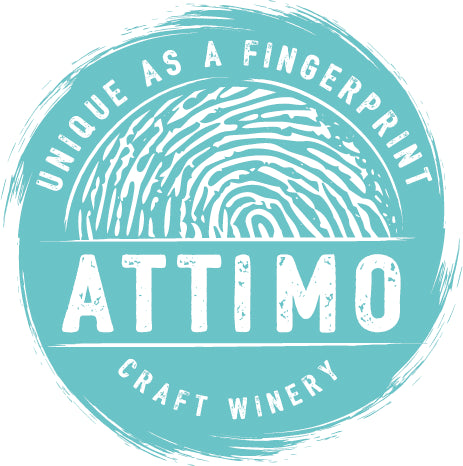Introduction to SQNPI certification and its importance.
As the world becomes more conscious of the environmental impact of our actions, industries across the board are taking steps to become more sustainable. One such industry is the wine industry, which has been making strides in adopting sustainable practices. A key player in this ongoing revolution is the SQNPI certification. SQNPI, or Sistema di Qualità Nazionale di Produzione Integrata, is the National Quality System of Integrated Production in Italy. This certification aims to promote sustainable agricultural practices, reduce the environmental impact of production, and ensure the highest quality of products.
SQNPI certification is an important step forward in the wine industry's efforts towards sustainability. It not only helps wineries reduce their ecological footprint but also ensures that the end product is of the highest quality. By adhering to the strict guidelines set by the SQNPI, wineries can demonstrate their commitment to sustainability and gain trust from their customers. As more and more consumers become environmentally conscious, this certification serves as a valuable differentiator in the market.
The importance of SQNPI certification cannot be overstated. It is not just a label, but a comprehensive system that ensures the sustainable management of resources, reduction of pollution, and promotion of biodiversity. It is a holistic approach to the wine industry that is paving the way for a more sustainable future.
The rise of sustainable vineyards
Sustainable vineyards are becoming increasingly popular as the wine industry recognises the need to reduce its environmental impact. These vineyards focus on implementing practices that minimize resource use, promote biodiversity, and protect the surrounding ecosystem. This can include water management techniques, organic farming practices, and the use of renewable energy sources.
One of the main drivers behind the rise in sustainable vineyards is the growing consumer demand for eco-friendly products. As more and more people become aware of the environmental issues facing our planet, they are looking for ways to make their consumption habits more sustainable. This has led to a surge in demand for sustainable wines, with many customers actively seeking out wineries that adhere to eco-friendly practices.
Another factor contributing to the rise of sustainable vineyards is the increasing awareness within the wine industry itself. Many winemakers have come to realise that sustainable practices not only benefit the environment but also lead to better quality wines. This is because healthy, biodiverse vineyards produce grapes with more complex flavours and characteristics, resulting in wines that are more expressive of the terroir. As a result, more and more wineries are embracing sustainability as a means of improving their products and gaining a competitive edge in the market.
Sustainability in the wine industry: current trends and challenges
As the wine industry embraces sustainability, several trends have emerged that are shaping the future of winemaking. One such trend is the increasing adoption of organic and biodynamic farming practices. These methods focus on nurturing the soil, promoting biodiversity, and minimising the use of synthetic chemicals. As a result, they not only help protect the environment but also produce higher quality grapes.
Another trend is the growing interest in craft wines, which are made with minimal intervention and additives. These wines, due to the way in which they are produced with a focus on quality over quantity is resulting in some unique flavors and aromas. So it’s no surprise that their popularity has been steadily rising in recent years. This trend is closely linked to the broader movement towards sustainability, as it encourages winemakers to focus on the health of their vineyards and the quality of their grapes.
Despite these positive trends, the wine industry still faces several challenges when it comes to sustainability. One major hurdle is the widespread use of water-intensive irrigation systems, which can put a strain on local water resources. Additionally, the reliance on monoculture farming practices can lead to soil degradation and reduced biodiversity. Tackling these challenges will require ongoing innovation and commitment from winemakers, as well as support from consumers who value sustainable practices.
The impact of SQNPI certification on sustainable winemaking practices
SQNPI certification has played a pivotal role in promoting sustainable winemaking practices. By providing a clear set of standards and guidelines for wineries to follow, it has helped raise awareness of the importance of sustainability within the industry. Moreover, it has created a competitive advantage for those wineries that have chosen to embrace sustainable practices, as the certification serves as proof of their commitment to the environment.
One of the key aspects of SQNPI certification is its focus on integrated production. This approach involves the careful management of resources, the implementation of eco-friendly farming practices, and the monitoring of environmental impact. By following these guidelines, wineries can minimise their ecological footprint while still producing high-quality wines.
Another important aspect of SQNPI certification is its emphasis on traceability. This means that every stage of the winemaking process, from the vineyard to the bottle, is carefully documented and monitored. This level of transparency not only ensures that the final product meets the certification's strict quality standards but also fosters trust and confidence among consumers.
Are wine boxes recyclable? Exploring eco-friendly wine packaging options
As the wine industry moves towards sustainability, packaging is an area where significant improvements can be made. One question that often arises is whether wine boxes are recyclable. The answer is yes, most wine boxes can be recycled, as they are typically made from cardboard or paper. However, it is essential to separate the different components of the box, such as the plastic bag and tap, before recycling.
Eco-friendly wine packaging options are becoming more popular as the industry recognises the need to reduce waste and minimise its environmental impact. Some alternatives to traditional wine bottles include TetraPak cartons, which are made from renewable materials and are fully recyclable. Another option is the use of lightweight glass bottles, which require less energy to produce and transport.
Moreover, some wineries are taking inspiration from craft breweries, experimenting with reusable packaging, such as refillable bottles and growlers. These initiatives not only help reduce waste but also encourage customers to engage with the winery and establish a more personal connection with the brand.
The role of SQNPI certification in promoting sustainability in wine making
SQNPI certification plays a crucial role in driving sustainability within the wine industry. By setting clear guidelines for sustainable practices and monitoring compliance, it helps ensure that wineries are taking meaningful steps towards reducing their environmental impact. This, in turn, promotes a culture of sustainability within the industry, as more and more wineries recognise the benefits of embracing eco-friendly practices.
One of the key ways in which SQNPI certification promotes sustainability is by providing wineries with a framework for continuous improvement. The certification process is rigorous and requires wineries to demonstrate their commitment to sustainability at every stage of production. This helps to ensure that they are constantly seeking new ways to minimise their ecological footprint and improve the quality of their wines.
Additionally, SQNPI certification serves as a valuable marketing tool for wineries. By displaying the certification on their products, they can signal their commitment to sustainability and differentiate themselves from competitors. This not only helps to attract environmentally conscious consumers but also encourages other wineries to follow suit and adopt sustainable practices.
Benefits of sustainable winemaking for businesses and consumers
There are several benefits of sustainable winemaking for both businesses and consumers. For wineries, adopting sustainable and craft practices can result in cost savings through more efficient resource management and reduced waste. Additionally, sustainable vineyards often produce higher quality grapes, which can lead to better-tasting wines that command higher prices in the market.
Sustainable winemaking also offers marketing benefits, as it allows wineries to differentiate themselves from competitors and appeal to environmentally conscious consumers. With growing awareness of the ecological issues facing our planet, more and more people are seeking out eco-friendly products, and the wine industry is no exception.
For consumers, choosing sustainable wines means supporting wineries that prioritise environmental stewardship and the well-being of their workers. Moreover, sustainable wines are often seen as higher quality products, as they reflect the careful management of resources and attention to detail throughout the production process. By opting for sustainable wines, consumers can enjoy a better-tasting product while also contributing to the health of the planet.
Future of sustainability in the wine industry
The future of sustainability in the wine industry looks promising, as more and more wineries recognise the benefits of embracing eco-friendly practices. With the help of certifications like SQNPI, the industry is well on its way to becoming more sustainable and environmentally responsible.
In the coming years, we can expect to see further innovation and developments within the industry as wineries continue to seek new ways to minimise their environmental impact. This could include the adoption of new technologies, such as precision agriculture and alternative packaging materials, as well as the expansion of organic and biodynamic farming practices.
Moreover, as consumer demand for sustainable products continues to grow, wineries that prioritise sustainability will be well-positioned to succeed in the market. By embracing sustainability, the wine industry can not only protect the environment but also ensure the long-term viability and success of the sector.
Conclusion: The ongoing revolution in sustainable winemaking through SQNPI certification
SQNPI certification is playing a crucial role in the ongoing revolution of sustainable winemaking. By providing a clear set of guidelines for sustainable practices and ensuring compliance, it is helping to drive positive change within the industry. As more wineries embrace sustainability and obtain SQNPI certification, we can look forward to a future where high-quality wines are produced in harmony with the environment.
As consumers, we have the power to support this revolution by choosing sustainable wines and advocating for eco-friendly practices within the industry. By doing so, we can contribute to a more sustainable future for the wine industry, and enjoy the benefits of better-tasting wines in the process.
Cheers to a greener future!


